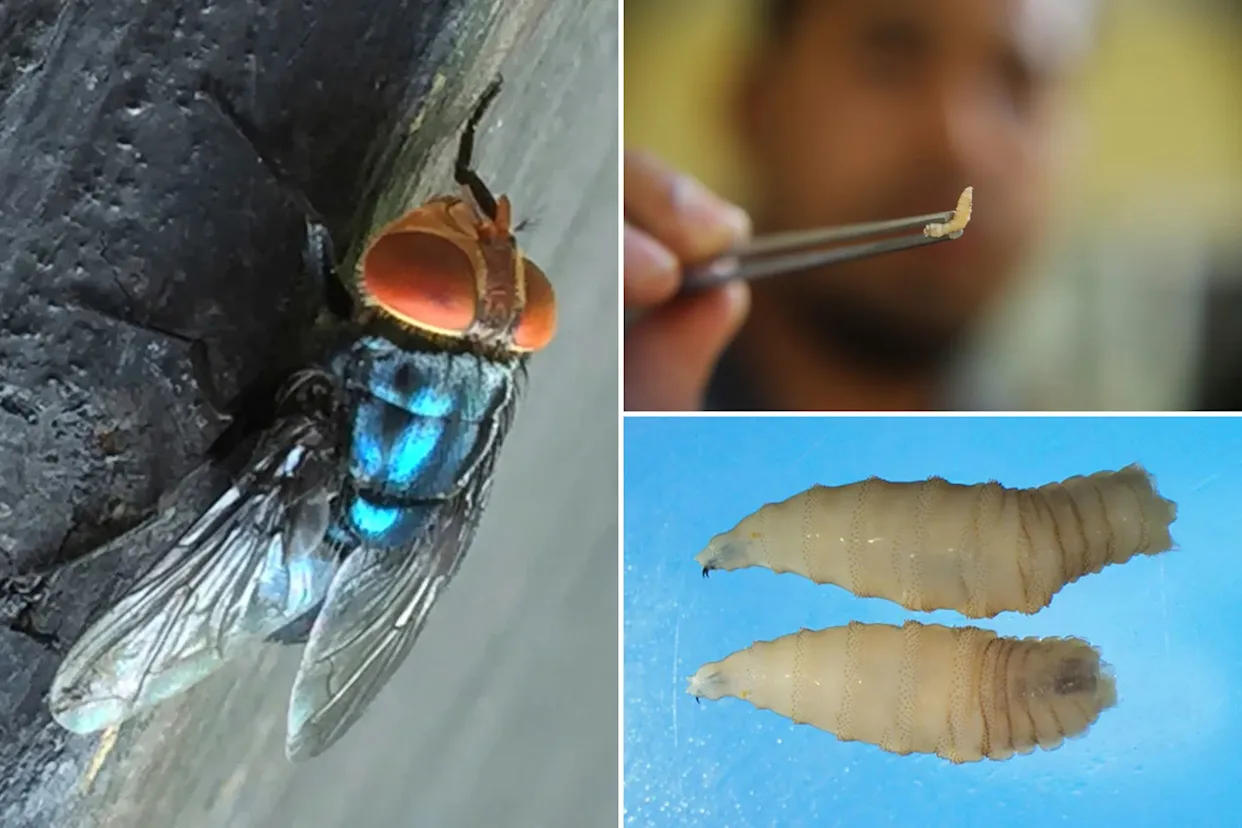Already a subscriber? Make sure to log into your account before viewing this content. You can access your account by hitting the “login” button on the top right corner. Still unable to see the content after signing in? Make sure your card on file is up-to-date.
The United States has confirmed its first human case of the New World screwworm, a flesh-eating parasitic fly previously eradicated from the country.
Some shit you should know before you read: If you’re unaware, the New World screwworm is a parasitic fly native to South America and parts of the Caribbean that thrives in warm, tropical climates and primarily targets warm-blooded animals. Its larvae feed on the living tissue of animals by burrowing into open wounds or natural orifices, causing severe infections, tissue destruction, and often death if left untreated. The parasite is especially dangerous to livestock but can also infect wildlife, pets, and, in rare cases, humans. In response, the USDA has ramped up inspections of cattle and meat coming into the US from Mexico.

What’s going on now: The confirmed US case involves a Maryland resident who had recently returned from El Salvador (one of several Central American countries currently grappling with the outbreak). According to the Department of Health and Human Services (HHS), this is the first known case of travel-associated screwworm myiasis identified in a human in the United States. The Centers for Disease Control and Prevention (CDC), along with the Maryland Department of Health, confirmed the infection on August 4. As of now, the patient has recovered, and officials have emphasized that there is no evidence of further spread to other people or animals in the area.
Federal and state officials are treating the detection as a wake-up call. HHS spokesperson Andrew Nixon stressed that while the risk to the general public remains low, the presence of screwworm in a returning traveler highlights the importance of awareness among healthcare workers and livestock owners. David McAllister of the Maryland Department of Health called the incident a “timely reminder” to maintain vigilance, especially for people and animals returning from outbreak-affected countries.
So far, no additional human cases have been reported in the US, but the USDA is preparing for worst-case scenarios. In response to the rapid spread of screwworm, the USDA has announced the construction of a new sterile fly production facility at Moore Air Force Base in Edinburg, Texas. The facility will produce up to 300 million sterilized male flies per week as part of a proven eradication strategy that uses sterilized males to collapse wild screwworm populations.
Agriculture Secretary Brooke Rollins said this is a critical step to protect both the national food supply and the ranching industry. Additional plans include investing $100 million into fly-tracking technologies, detection dogs, and border surveillance.







